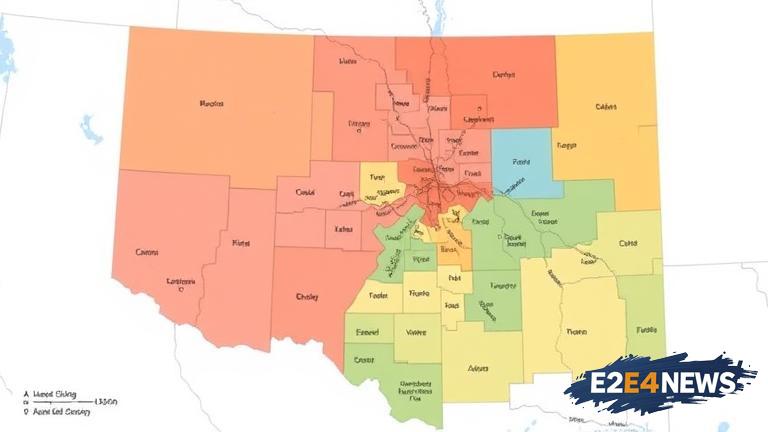In a landmark decision, a federal judge has ordered the state of Utah to redraw its congressional map, citing allegations of partisan gerrymandering. The ruling comes after a lengthy court battle, with plaintiffs arguing that the current map unfairly favors Republican candidates. The judge’s decision is seen as a significant victory for Democrats and voting rights advocates, who have long argued that the existing map is biased towards the GOP. The current map was drawn in 2021, following the 2020 census, and has been the subject of controversy ever since. Critics argue that the map was deliberately crafted to split up Democratic-leaning areas, diluting the voting power of minority communities. The judge’s ruling is expected to have far-reaching implications for the state’s electoral landscape, potentially paving the way for more competitive elections. Utah’s congressional delegation is currently comprised of four Republican representatives, with Democrats arguing that the map has made it difficult for them to compete. The ruling is also seen as a test case for other states, where similar allegations of partisan gerrymandering have been made. The Utah Legislature has been given a deadline to redraw the map, with the judge warning that failure to comply could result in the court intervening. The decision has sparked a heated debate over the role of politics in shaping voting district boundaries. Republicans have argued that the map is fair and that the judge’s ruling is an overreach of judicial authority. However, Democrats and voting rights advocates argue that the decision is a crucial step towards ensuring that all voters have an equal say in the electoral process. The case has also highlighted the importance of independent redistricting commissions, which are seen as a way to reduce the influence of partisan politics in the map-drawing process. Utah’s experience serves as a cautionary tale for other states, where the consequences of partisan gerrymandering can be severe. The ruling is expected to have significant implications for the 2024 elections, with Democrats hoping to capitalize on the new map to gain a foothold in the state’s congressional delegation. The decision has also sparked a wider debate over the need for electoral reform, with many arguing that the current system is stacked against minority communities and Democratic voters. As the Utah Legislature begins the process of redrawing the map, all eyes will be on the state to see how the new boundaries are drawn. The judge’s ruling has sent a clear message that partisan gerrymandering will not be tolerated, and that the rights of all voters must be protected. The case is a significant milestone in the ongoing battle over voting rights, with implications that extend far beyond the borders of Utah. The decision has been hailed as a major victory for democracy, with many arguing that it will help to restore faith in the electoral process. However, the road ahead is likely to be fraught with challenges, as lawmakers navigate the complex and often contentious process of redrawing the map. Ultimately, the outcome of the case will depend on the ability of lawmakers to put aside their partisan differences and work towards a fair and equitable solution. The people of Utah will be watching closely, as the state’s electoral landscape is reshaped in the coming months. The ruling is a reminder that the struggle for voting rights is ongoing, and that the fight for fair representation is far from over. As the nation looks on, Utah’s experience serves as a powerful reminder of the importance of protecting the integrity of the electoral process.
